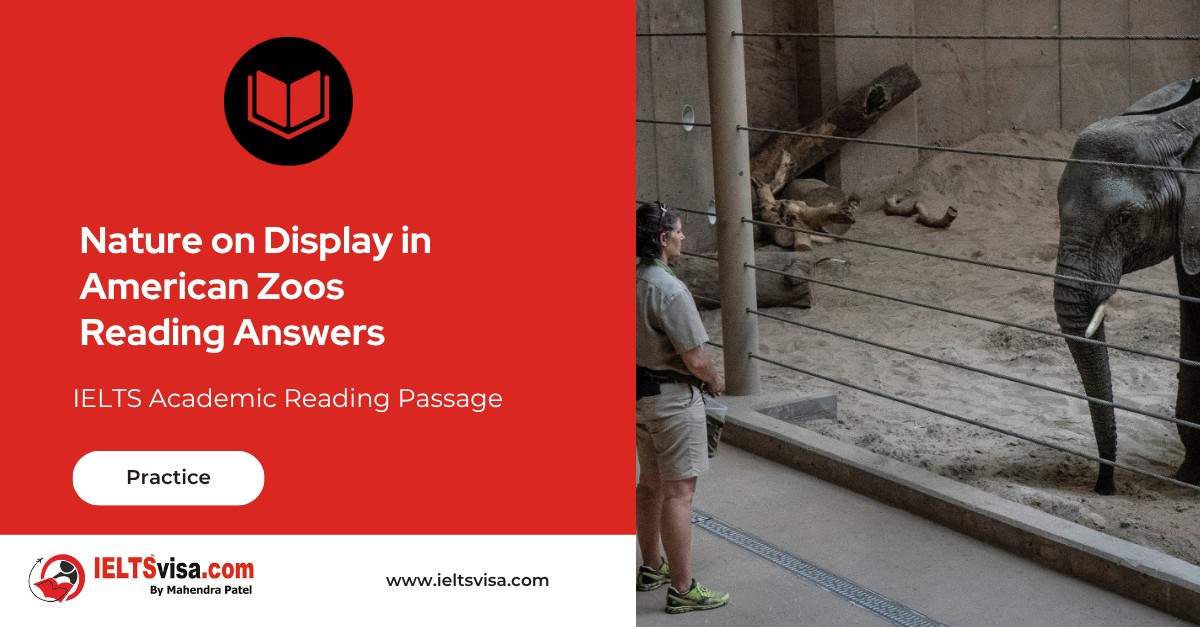Motivational Factors and the Hospitality Industry Reading Answers
IELTS Academic Reading Passage
A A critical ingredient in the success of hotels is developing and maintaining superior performance from their employees. How is that accomplished? What Human Resource Management (HRM) practices should organizations invest in to acquire and retain great employees?
B Some hotels aim to provide superior working conditions for their employees. The idea originated from workplaces usually in the non-service sector that emphasized fun and enjoyment as part of work-life balance. By contrast, the service sector, and more specifically hotels, has traditionally not extended these practices to address basic employee needs, such as good working conditions.
C Pfeffer (1994) emphasizes that in order to succeed in a global business environment, organizations must make investment in Human Resource Management (HRM) to allow them to acquire employees who possess better skills and capabilities than their competitors. This investment will be to their competitive advantage. Despite this recognition of the importance of employee development, the hospitality industry has historically been dominated by underdeveloped HR practices (Lucas, 2002).
D Lucas also points out that ‘the substance of HRM practices does not appear to be designed to foster constructive relations with employees or to represent a managerial approach that enables developing and drawing out the full potential of people, even though employees may be broadly satisfied with many aspects of their work’ (Lucas, 2002). In addition, or maybe as a result, high employee turnover has been a recurring problem throughout the hospitality industry. Among the many cited reasons are low compensation, inadequate benefits, poor working conditions and compromised employee morale and attitudes (Maroudas et al, 2008).
E Ng and Sorensen (2008) demonstrated that when managers provide recognition to employees, motivate employees to work together, and remove obstacles preventing effective performance, employees feel more obligated to stay with the company. This was succinctly summarized by Michel et al. (2013): Providing support to employees gives them the confidence to perform their jobs better and the motivation to stay with the organization. Hospitality organizations can therefore enhance employee motivation and retention through the development and improvement of their working conditions. These conditions are inherently linked to the working environment.
F While it seems likely that employees’ reactions to their job characteristics could be affected by a predisposition to view their work environment negatively, no evidence exists to support this hypothesis (Spector et al, 2000). However, given the opportunity, many people will find something to complain about in relation to their workplace (Poulston, 2009). There is a strong link between the perceptions of employees and particular factors of their work environment that are separate from the work itself, including company policies, salary and vacations.
G Such conditions are particularly troubling for the luxury hotel market, where high-quality service, requiring a sophisticated approach to HRM, is recognized as a critical source of competitive advantage (Maroudas et al., 2008). In a real sense, the services of hotel employees represent their industry (Schneider and Bowen, 1993). This representation has commonly been limited to guest experiences. This suggests that there has been a dichotomy between the guest environment provided in luxury hotels and the working conditions of their employees.
H It is therefore essential for hotel management to develop HRM practices that enable them to inspire and retain competent employees. This requires an understanding of what motivates employees at different levels of management and different stages of their careers (Enz and Siguaw, 2000). This implies that it is beneficial for hotel managers to understand what practices are most favorable to increase employee satisfaction and retention.
I Herzberg (1966) proposes that people have two major types of needs, the first being extrinsic motivation factors relating to the context in which work is performed, rather than the work itself. These include working conditions and job security. When these factors are unfavorable, job dissatisfaction may result. Significantly, though, just fulflling these needs does not result in satisfaction, but only in the reduction of dissatisfaction (Maroudas et al., 2008).
J Employees also have intrinsic motivation needs or motivators, which include such factors as achievement and recognition. Unlike extrinsic factors, motivator factors may ideally result in job satisfaction (Maroudas et al, 2008). Herzberg’s (1966) theory discusses the need for a ‘balance of these two types of needs.
K The impact of fun as a motivating factor at work has also been explored. For example, Tews, Michel and Stafford (2013) conducted a study focusing on staff from a chain of themed restaurants in the United States. It was found that fun activities had a favorable impact on performance and manager support for fun had a favorable impact in reducing turnover. Their findings support the view that fun may indeed have a beneficial effect, but the framing of that fun must be carefully aligned with both organizational goals and employee characteristics. Managers must learn how to achieve the delicate balance of allowing employees the freedom to enjoy themselves at work while simultaneously high levels of performance’ (Tews et al., 2013).
L Deery (2008) has recommended several actions that can be adopted at the organizational level to retain good staff as well as assist in balancing work and family life. Those particularly appropriate to the hospitality industry include allowing adequate breaks during the working day, staff functions that involve families, and providing health and well-being opportunities.
Questions 1-5
Look at the following statements (Questions 1-5) and the list of researchers below.
Match each statement with the correct researcher, A-F.
Write the correct letter, A-F, in boxes 1-5 on your answer sheet.
NB You may use any letter more than once.
1 Hotel managers need to know what would encourage good staff to remain.
2 The actions of managers may make staff feel they shouldn’t move to a different employer.
3 Little is done in the hospitality industry to help workers improve their skills.
4Staff are less likely to change jobs if cooperation is encouraged.
5 Dissatisfaction with pay is not the only reason why hospitality workers change jobs.
List of Researchers
A Pfeffer
B Lucas
C Maroudas et al.
D Ng and Sorensen
E Enz and Siguaw
F Deery
Questions 6-9
Do the following statements agree with the claims of the writer in the Reading Passage?
In boxes 6-9 on your answer sheet, write
YES if the statement agrees with the claims of the writer
NO if the statement contradicts the claims of the writer
NOT GIVEN if it is impossible to say what the writer thinks about this
6 One reason for high staff turnover in the hospitality industry is poor morale.
7 Research has shown that staff have a tendency to dislike their workplace.
8 An improvement in working conditions and job security makes staff satisfied with their jobs.
9 Staff should be allowed to choose when they take breaks during the working day.
Questions 10-14
Complete the summary below.
Choose ONE WORD ONLY from the passage for each answer.
Write your answers in boxes 10-14 on your answer sheet.
Fun at work
Tews, Michel and Stafford carried out research on staff in an American chain of 10…………. They discovered that activities designed for staff to have fun improved their 11…………,and that management involvement led to lower staff 12………..They also found that the activities needed to fit with both the company’s 13…………. and the 14…………… of the staff. A balance was required between a degree of freedom and maintaining work standards.

Solution For: Motivational Factors and the Hospitality Industry
Reading Answers
| 1. E | 2. No |
| 3. D | 4. Not Given |
| 5. B | 6. restaurants |
| 7. D | 8. performance |
| 9. C | 10. turnover |
| 11. Yes | 12. goals |
| 13. No | 14. characteristics |
Review and Practice
- Regularly practice with IELTS reading samples and time yourself to get used to the pressure of the exam.
- Review your mistakes to understand where you went wrong and how to avoid similar errors in the future.
Our Books
Master IELTS Speaking Part 1
IELTS Writing Task 1 Book
IELTS Writing Task 2 Book
Motivational Factors and the Hospitality Industry Reading Answers Explanation
Comin Soon
Practice IELTS Other Modules
IELTS Listening
The IELTS Listening test assesses how well you can understand spoken English in various contexts. It lasts about 30 minutes and is divided into four sections with a total of 40 questions. The listening tasks become increasingly difficult as the test progresses.
IELTS Academic Reading
The IELTS Academic Reading section assesses your ability to understand and interpret a variety of texts in academic settings. It is designed to evaluate a range of reading skills, including skimming for gist, reading for main ideas, reading for detail, understanding inferences, and recognizing a writer's opinions and arguments.
IELTS Speaking
The IELTS Speaking test assesses your ability to communicate in English on everyday topics. It lasts 11-14 minutes and consists of three parts: introduction, cue card, and a discussion based on the cue card topic.
IELTS General Reading
IELTS General Reading tests your ability to understand and interpret various types of texts. Here are some key areas and types of content you can expect to encounter in the reading section, along with tips for effective preparation.
IELTS Academic Writing Task 1
In IELTS Academic Writing Task 1, you are presented with a visual representation of information, such as graphs, charts, tables, or diagrams, and you are required to summarize, compare, or explain the data in your own words.
IELTS General Writing Task 1
In IELTS General Writing Task 1, you are required to write a letter based on a given situation. The letter can be formal, semi-formal, or informal, depending on the prompt. Here’s a breakdown of the key components to include in your letter
IELTS Academic Writing Task 2
In IELTS Academic Writing Task 2, you are required to write an essay in response to a question or topic. Here’s a guide to help you understand the essential elements of this task
IELTS Exam Tips
To succeed in the IELTS exam, practice regularly, familiarize yourself with the test format, improve your vocabulary, develop time management skills, and take mock tests to build confidence.
Grammer for IELTS
Grammar is the foundation of effective communication in English. Understanding tense usage, subject-verb agreement, and sentence structure enhances clarity and coherence in writing and speaking.
Vocabulary for IELTS
Vocabulary plays a crucial role in the IELTS (International English Language Testing System) exam, especially in the Speaking and Writing sections. Here’s an overview of why vocabulary is important and how it impacts your performance
RECENT IELTS SAMPLES QUESTIONS AND ANSWERS
Walking with dinosaurs
Peter L. Falkingham and his colleagues at Manchester University are developing techniques that...
Money as the Unit of Amount Reading Answers
The most difficult aspect of money to understand is its function as a unit of account. In...
WEATHERING IN THE DESERT
In the deserts, as elsewhere, rocks at the earth's surface are changed by weathering, which...
Nature on Display in American Zoos
The first zoo in the United States opened in Philadelphia in 1874, followed by the Cincinnati...
Can We Prevent the Poles From Melting
Such is our dependence on fossil fuels, and such is the volume of carbon dioxide we have...
Air conditioning the earth reading answers
The circulation of air in the atmosphere is activated by convection, the transference of heat...













